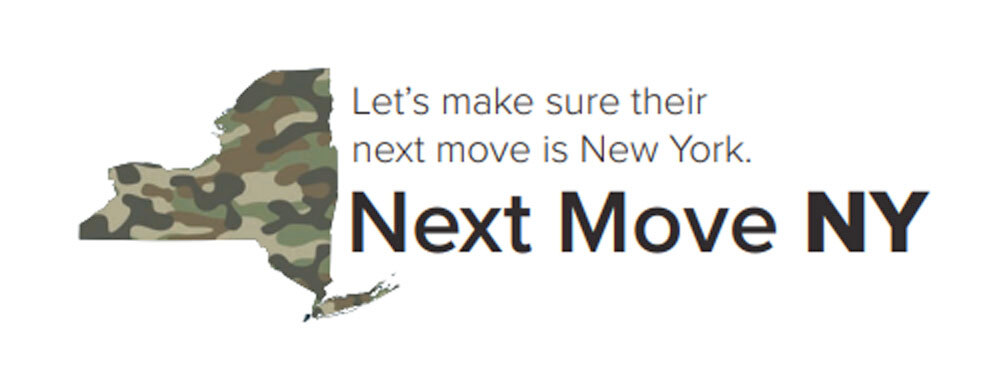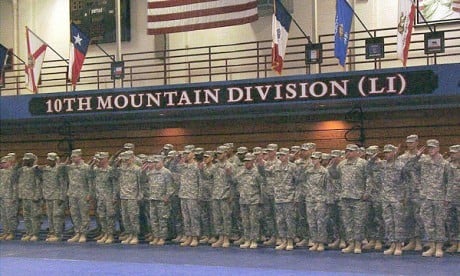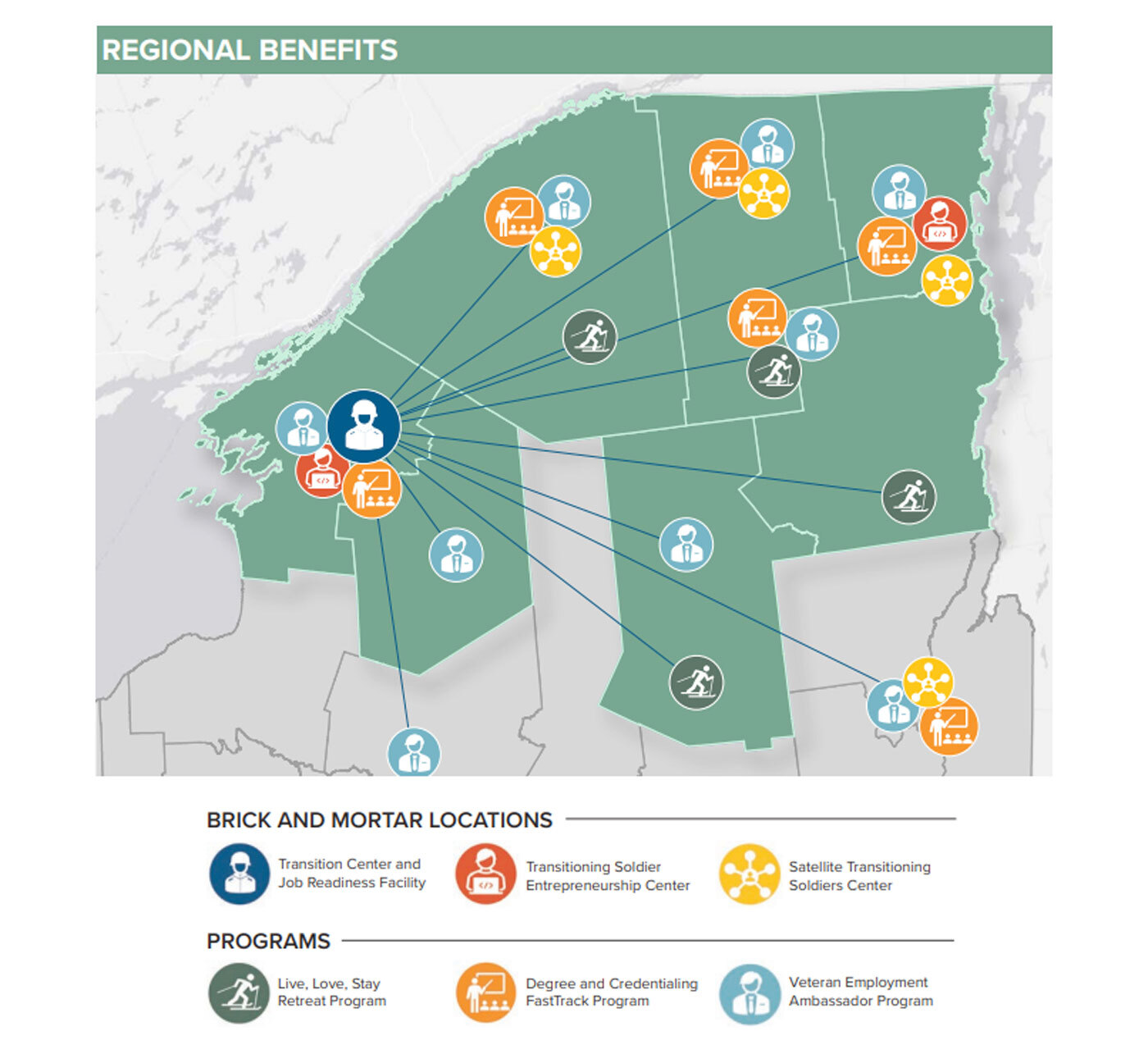A new program through the North Country Regional Economic Development Council (REDC) aims to turn Fort Drum into a workforce pipeline for the region.
The council recently won $10 million from the state to create Next Move NY, a workforce development initiative that will focus on recruiting soldiers and their families as they transition to civilian life.

David Zembiec is with Advocate Drum, the Fort Drum Regional Liaison Organization. He says the concept of using Fort Drum to fuel workforce development isn’t a new one, and there have been individual efforts to raise awareness of soldiers’ transferrable skills and the job opportunities available off-base.
“But this (Next Move NY) actually gets at a level of putting a program in place to really build this up and make it sustainable in the long-term,” he said.
An impending workforce gap
The REDC estimates that the North Country — which the state defines as Clinton, Essex, Franklin, Hamilton, Jefferson, Lewis and St. Lawrence counties — will have a workforce gap of 48,000 people over the next decade.
REDC co-chair Jim McKenna says there are needs and demands across all industries, including the public sector, nonprofits, corporations, education, hospitality and health care.
The council sees Next Move NY as a solution to that problem. About 4,600 soldiers and military spouses based at Fort Drum leave the military each year. If all of those people decided to stay in the North Country, the region would have about 46,000 new workers over the next 10 years, effectively closing the workforce gap.
McKenna says the council knows that’s not realistic, but still hopes Next Move New York will capture a good chunk of those potential new residents.
“We hope within the next first five years that we could be approaching the 50% level,” he said.
That’s still a high number, but Zembiec says it might be possible. He says about a third of Fort Drum’s transitioning soldiers want to stay in the area, and will if they can find jobs. Another third want to go back to where they’re originally from. That last third are somewhere in the middle.
“They’re not committed to staying here, but they’re going to go where the job is,” he said. “So if they find a job here, great, if it’s somewhere else, they’ll go there. So basically, two-thirds of those soldiers leaving each month are a potential talent/individual to keep in the area.”

Kate Morris is the REDC’s other co-chair. She emphasized that Next Move NY will only involve people who have already decided to leave the military.
“Our effort is about the people who have already made that discernment, that they are going to be leaving the military, and then talking with them about the benefits of staying in the North Country or in New York more generally.”
Matchmaking jobs with soldiers
According to the council’s proposal, Next Move NY will be housed within the Development Authority of the North Country (DANC).
McKenna says the project will be based in the Watertown area, and later branch out to the rest of the region.
“The whole concept here is really in matchmaking the potential jobs or the jobs that are available with the transitioning soldiers,” he said.
The initial plan is to create a project team of three people, including a regional business liaison whose job will be to build the pipeline between the transitioning military families and the region’s employers.
And there are plans for multiple incentives for the new veterans and their spouses, including a jobs matching portal, degree fast track program and a brick-and-mortar vocational training and job readiness facility.

McKenna says the goal is for Next Move NY to become self-sustaining.
“We think the $10 million will get us through the first five years and that by that time, DANC will have a sustainable program moving forward.”
Dozens of employers across the North Country have already endorsed Next Move NY, like Jefferson Community College in Watertown, Adirondack Health in the Tri-Lakes and Monaghan Medical in Plattsburgh.
Morris says businesses based outside the region, like Micron in Syracuse and GlobalFoundries in Malta, have signed on to support it.
“Our main focus as the North Country Regional Economic Development Council has been to focus on northern New York, but we are so pleased that there’s opportunities to benefit the state more broadly,” she said.
The housing barrier
Getting the soldiers and their families to stay is one thing, but getting them a place to live is another.
The national nonprofit Up for Growth found that New York state is short almost a quarter of a million homes and housing underproduction in rural communities like the North Country has quadrupled over the last decade.
The REDC acknowledges that the lack of access to affordable and attainable housing is a big barrier to achieving its other goals, like growing the region’s workforce. McKenna says it’s put forward a strategic plan to address the housing shortage.
“It’s a combination of really getting our small municipalities that lack the good planning and zoning offices to develop more density in their zoning plans, and also developing a program that would help with pre-development funds and also low-interest loan funds for both private and nonprofit housing developers.”
A lot to offer...
Morris says the REDC believes the North Country has a lot to offer new veterans and their families: community, recreation, access to nature.
“We think this [Next Move NY] is a great way to support our special community and allow people to grow and thrive and develop themselves … with their families.”
Craig McNamara is one former Fort Drum soldier who chose to come back to the North Country. He now runs the base’s transition assistance program, which helps soldiers and their families prepare to leave the military.
McNamara says one of his biggest sells for new veterans to stay in the North Country is the support and understanding they’ll get from the surrounding community. He says that comes from how integrated Fort Drum is in the region, something that’s not always the case at larger bases.
“But here, because of our history and because of our relationship with the community, in a sense we all serve,” he said, “and that, for a veteran, is an amazing and supportive environment to come back to. I can tell you firsthand that I’ve experienced that.”
...and a lot to gain
Morris and McKenna say the North Country itself really stands to gain from more military families deciding to stay. There are the economic benefits, but also increased diversity and the ability to grow the population.
McKenna says all that, combined with the state’s downtown revitalization investments, feeds into creating vibrant communities.
“We think we now have a lot of the ingredients necessary to make a difference in the quality of life for all of our communities.”
The council expects Next Move New York to be up and running by January 2025.
